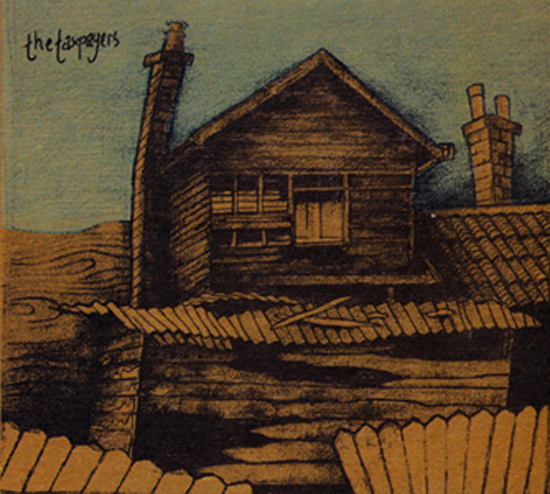by Nicole Powers
“I think that the tide against mountaintop mining’s free ride is turning.”
– Bill Haney
There’s nothing pretty about coal mining at the best of times, but mountaintop removal mining is downright obscene. The process is ugly in every sense of the word, but is less labor intensive, and therefore cheaper and more desirable for the big energy corporations who do it. However the hidden expense in terms of the environment, public health, employment, and subsidies mean that it’s something that the American public is paying dearly for. The cost of mountaintop removal mining is something that is literally and metaphorically killing us.
The sordid details involve deforestation to prepare the site. The ‘overburden’ – in this case a euphemism for the top 250 to 500 feet of a mountain – is then removed using dynamite to reveal the underlying coal seam. The rubble created as the mountaintop is blown away is generally pushed down the mountainside, covering flora and fauna, rivers and streams, and anything else in its wake. Once the coal has been removed the mining companies are supposed to restore the site, but this requirement is at best broadly interpreted, and at worse blatantly flouted with few repercussions.
Fifty percent of the electricity produced in the US comes from coal-powered plants, and thirty percent of the coal used comes from Appalachia. As a result, 500 majestic Appalachian mountains have been destroyed. The biggest perpetrator of this destruction is Massey Energy, who proudly proclaim on their website that their ‘vision’ is ‘to be the premier supplier of quality coal from Central Appalachia to worldwide markets.’
The physical removal of coal however, is only the first stage in a highly toxic chain of events. The coal then has to be prepared, a procedure that uses vast amounts of water to wash off the soil and rock. The byproduct of this is a filthy sludge, which contains all manner of heavy metals and other such carcinogens, that is stored in vast impoundments. These sludge ponds are generally lazily constructed using dirt that is blasted off the mountaintop to damn a valley below. For the most part, there’s no concrete or steel reinforcement as would befit dams built on such a scale. Because of this, many of these impoundments are leaking, and, furthermore, because these structures are not lined, the pollutants even in the sound dams leak into the surrounding water table.
The environmental impact of such mining practices is supposed to be mitigated by the Clean Air and Clean Water Acts, which in turn are supposed to be enforced by the Environmental Protection Agency (EPA), the Department of Environmental Protection (DEP), and, to some extent, the Army Corps of Engineers. But a Bush-era single word change to the Clean Water Act arrested its ability to control pollution, much to the delight of the polluters. Known as the Fill Rule, the definition of allowable fill material that could be dumped into lakes, rivers, and streams was essentially broadened to include all manner of waste. Thus, the Clean Water Act now serves as a license for big business to pollute.
Because of the intrinsically dirty nature of coal mining and the cozy relationship the industrialists have with those in power (George Bush famously called his election to office ‘a coal-fired victory’ because of the extent of the industry’s contributions to his cause), pollution is an inevitable part of the process and polluters are rarely brought to task. For example, according to Environmental Protection Agency records, Massey Energy committed over 60,000 violations between 2000 and 2006, but has paid a pittance in fines, which when compared to the company’s profits barely even register as a tickle on the wrist, never mind the slap they’re supposed to be.
In the lieu of the government acting in the interests of the people it’s supposed to represent, the battle for clean air and water, and sustainable energy and jobs is being fought on the ground by those Big Coal directly adversely effects. The struggle of one such community in West Virginia’s Coal River Valley, whose homes, land, health, and employment prospects have been blighted by Massey’s mountaintop removal mining operations, is documented in a new film, The Last Mountain.
A collaboration between filmmaker Bill Haney (whose previous credits include the Academy Award-shortlisted Price of Sugar) and renowned environmental lawyer and activist Robert F. Kennedy, Jr., The Last Mountain should be mandatory viewing for anyone who’s ever switched on a light. The film not only tells the inspiring story of the grassroots fight against the Goliath that is Massey, but also underlines our implicit culpability, which can be summed up by one simple yet staggering statistic: sixteen pounds of coal is burned each day for every man woman and child in the US.
SuicideGirls participated in roundtables with Haney and Kennedy. The following is excerpted from the interview with Haney (our conversation with Kennedy is posted here).
Read our interview with Bill Haney on SuicideGirls.com.
The Last Mountain opens in Los Angeles* on Wednesday, June 15, and in Irvine, Pasadena, Philadelphia, San Francisco*, and Berkeley on Friday, June 17.
*Bill Haney and Robert F. Kennedy, Jr. will appear in person at the Landmark opening night screenings in Los Angeles and San Francisco – visit the Landmark website for more details.









